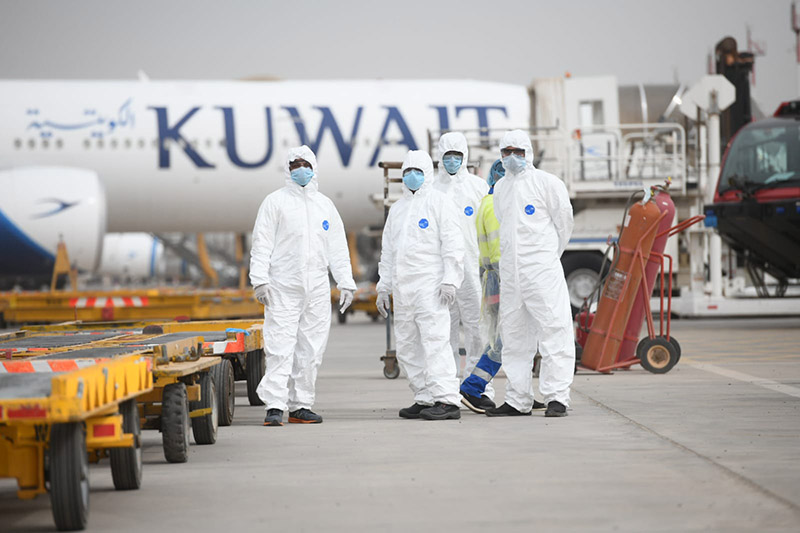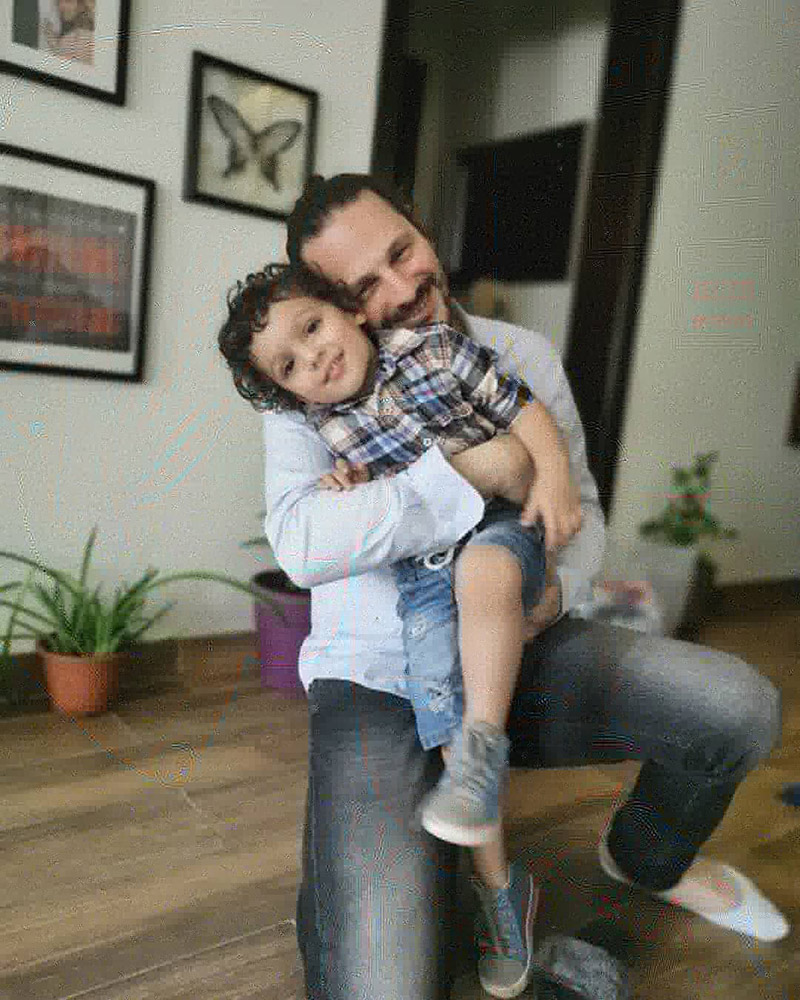
By Jamie Etheridge
Francesco is a happy, smiling preschooler doted on by his parents. He is also a child with autism. Diagnosed last year, his parents struggled to find affordable and accessible support for him in Kuwait, and so traveled to India during the February national holidays to seek help. They had enrolled Francesco in autism, occupation and speech therapy in Mumbai.

Then the global pandemic upended everything. Many people around the globe were separated due to lockdowns, closures of borders and shelter-in-place orders. But for parents with small children, the separations are especially heartrending and difficult.
“We were on holiday in Mumbai when we got the message that we needed to enter Kuwait before March 7 or else would be required to produce a negative COVID test certificate,” explained his mom, Francesca Rodz. Since the certificate was impossible to obtain in India, she and her husband rushed back to Kuwait, where the Indian-Italian couple lives and works.
They decided to leave Francesco in India with Francesca’s elderly mother temporarily. That way he could continue the therapies and Francesca would return to retrieve him after the crisis subsided. But the closure of Kuwait’s and India’s airports meant that they could not return to their son nor bring him back to Kuwait. He has difficulty communicating and can’t sit still long enough to talk on the telephone or via WhatsApp.
This is a nightmare for his parents, who have now been separated from their child for nearly three months due to the lockdown in Kuwait. “I didn’t think it would be so long,” his mother said. “I just want to see my child again.”
Thousands of expatriates have suffered lengthy separations from family or were locked outside the country completely when the government closed the airport on May 13. In late May, news reports suggested that the airport was being readied for reopening and that commercial flights might restart by mid-June. But Kuwait’s civil aviation directorate refuted the timeline, noting that while the airport would be ready, the decision for reopening lies with the government.
So far no date for the reopening, for allowing legal residents to return to Kuwait, has been announced.
According to research published by the global children’s welfare agency Save the Children, feelings of helplessness, loneliness and fear along with lack of outdoor time, no school or separation from caregivers are common during epidemics and can contribute to mental health conditions including anxiety and depression.
“While children are resilient, we cannot underestimate the impact the pandemic is having on their mental wellbeing and overall health,” said Marie Dahl, Head of Save the Children’s Mental Health and Psychosocial Support Unit. The impact on children’s health and well-being is only one side of the coin. Parents too feel anxious, stressed, depressed and worried for the children they are separated from.
For Anna Alcantara, the closure has also been heartbreaking. A mom of four children ranging in ages from 4 to 14 years old, Anna hasn’t seen her children in nearly three months. She traveled to the United States on March 8 because her mother was critically ill and passed away shortly after Anna’s arrival. By the time she tried to return to her husband and children, the airport in Kuwait was closed to all foreigners including those with legal residency.
“I have suffered from depression and anxiety from losing my mom and not being able to return to my family in Kuwait. My kids and my husband are also impacted by this unexpected long separation,” Anna told Kuwait Times via email from the US, where she is still waiting.
Others have been locked out completely. Audrey Gomez d’Cruz is a mom whose children are stuck in Kuwait without her. She and her husband had traveled to India for a funeral. They flew back via Sharjah, UAE with flights booked on March 7, and have been stuck there ever since. Audrey’s elderly father, who has heart trouble, struggles to care for her three children here in Kuwait.
Like the thousands of other residents whose lives have been upended, Audrey and her husband have reached out to Kuwait government authorities for help in returning to their children and their home in Kuwait. So far they have received no positive responses. Kuwait’s Ministry of Foreign Affairs did not respond to a request for comment.
The full curfew in Kuwait is scheduled to end on May 30 and there is hope that life will return to something close to normal as businesses and the government reopen. But until now, there is no announcement regarding commercial flights into the country and allowing expatriates with legal residency in Kuwait to return.
The pandemic has thrown the entire world, the entire global economy, into turmoil, and the effects may last long into the future. But the toll it has taken on children and especially those separated from their parents may be the most far-reaching of all.









